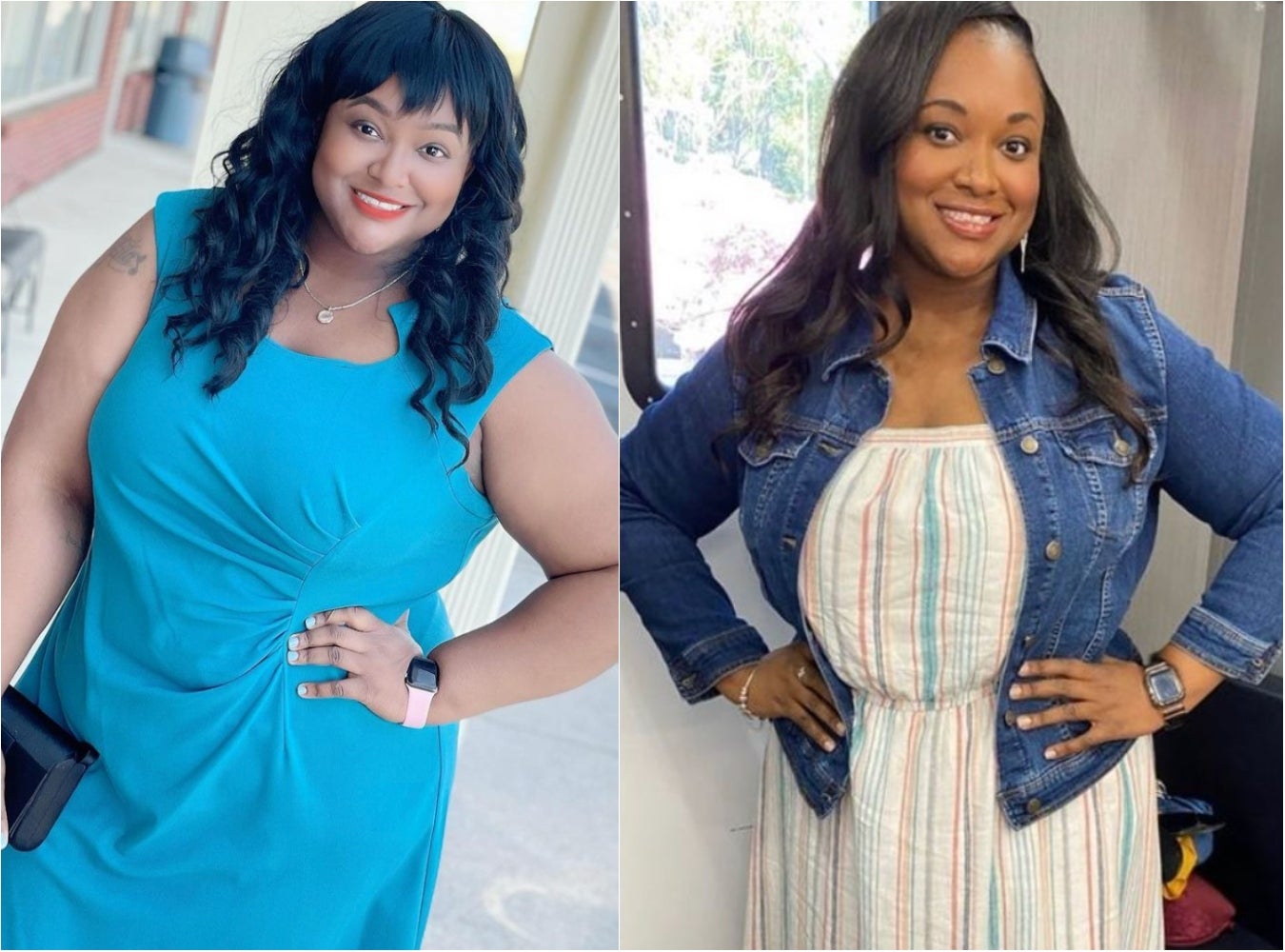
When Cheria Moore looked in the mirror in August 2021, she didn’t like who she was becoming. At 29 years old, the Huntsville, Ala. resident was diagnosed with Type 2 diabetes, had a complicated relationship with food and suffered from obesity. Her medical prognosis confirmed what she already knew. She needed to commit to a healthier lifestyle.
“One day I looked in the mirror and tried to find one thing that I liked about myself and I just couldn’t,” Moore tells ESSENCE.
After being diagnosed, she set on a journey to make a change. In less than a year, Moore was able to lose 59 pounds and reverse her Type 2 diabetes.
She credits WW (Weight Watchers), specifically her coach, with motivating her to keep going while also providing tools to aid in weight loss and overall well-being. She also joined WW’s Black Women’s Virtual Workshops, which she considers instrumental in her journey. The groups are smaller communities of WW participants created to connect women with similar interests or locations.
“I’ll be honest, when I thought of WW, I didn’t think it was for women who look like me,” she admits. “But having a large group of Black women to support me on the journey has been revolutionary.”
In June, the sustainable weight-loss management company announced the results of a study that showed positive results from its six month clinical trial that tested the effectiveness of its program for those living with diabetes on weight management. According to the study, participants experienced reduction in diabetes distress by 9.8 percent —the emotional burden and overall stress related to the condition. Per the study, participants also experienced an average weight loss of 5.7 percent.
For Moore, the commitment to change proved to do more than just mitigate distress; she was able to reverse her diabetes—something she still finds “surreal”—and feel a great sense of accomplishment.
“For the first time in a while I had set my mind on something and completed it,” she says. “I have struggled with my weight since elementary school. My weight was something I could never overcome. I am a first-generation college graduate—not once but twice—and have had to overcome a lot of obstacles; but my weight is the one I always struggled with.”
Pointing out that she comes from a long line of overweight men and women, many who have diabetes or other health conditions, Moore assumed her weight issues were just a part of her genetic makeup and couldn’t be altered. But after her diagnosis, she decided to change the narrative she was telling herself.
“When I found out I had diabetes, it was the confirmation I needed that it was time to change,” Moore says. “And not just for myself but for an entire generation. My family.”
Diabetes affects approximately 11.3 percent of the U.S. population. Black women and men are 60 percent more likely than white adults to be diagnosed. Black women are the group most likely to be affected.
Moore didn’t want to be defined by those numbers, so she put in the work, which was strenuous.
“It was scary, especially in the beginning. There were times I wanted to give up because it wasn’t easy,” she says.
Along with working with her WW coach, she was able to change her eating habits, allowing herself moments to splurge on her favorite foods, like cheesecake, without going overboard. And working in property management, she’s hardly sedentary at work, which allows her to make sure she “gets in a lot of steps.”
It’s been a year since Moore set out on her weight-loss journey. She now chronicles her experiences via her social media pages, including Instagram. She frequently mentions that it’s not the reversal of her diabetes or even the substantial loss of weight that has been the most rewarding. In the end, it’s been her overall journey to self-love.
“When I looked in the mirror about a year ago, it was scary because I didn’t realize how much I’d let myself go,” says Moore. “But now when I look in the mirror, I am proud of what I’ve been able to do to get healthy. I feel like I finally have my life back.”